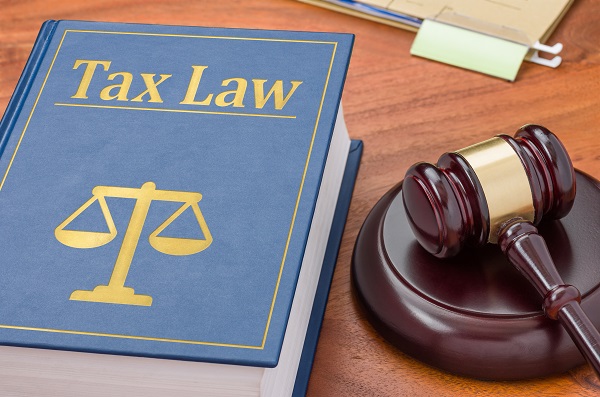Property tax loans are relatively simple and straightforward, especially when compared to other lending products like mortgages.
Read more about the basics of how property tax loans work, and about who is eligible to take out a property tax loan.
But essentially, these useful financial products help property owners avoid losing their property to foreclosure by providing the cash necessary to pay their tax obligation up front and allowing the owner to repay those funds over time pursuant to a customized payment plan.
In this post, we’re going to set out some useful information to know about property tax loans to guide you in your search for the right lender.
Who issues property tax loans?
Property tax loans are issued by private lenders that are typically dedicated to making and servicing exclusively property tax loans. This singular focus allows property tax lenders to channel all their knowledge and resources into providing the best financial product for their specific type of client.
Nearly all lenders provide a convenient online portal for their clients to use to apply for their loan. The lender will review the application and a professional loan officer will call the potential borrower to gather the rest of the information necessary to determine the potential borrower’s eligibility for a loan.
The application and approval process typically takes just one to two days, with funds dispersing to pay the borrower’s delinquent property tax usually within a week.
Does anyone regulate the property tax lending industry?
Yes. Property tax lenders, like all commercial and residential lenders in Texas, are regulated by the State of Texas. The state agency responsible for providing oversight to our important industry is the Texas Office of Consumer Credit Commissioner.
The OCCC can be reached by phone at (512) 936-7200 or online at https://occc.texas.gov. The OCCC’s physical offices are located in the Finance Commission Building at 2601 N. Lamar Blvd. Austin, TX 78705.
Additionally, although not a regulatory body, the Texas Property Tax Lienholders Association is a professional organization comprised of the leading lenders in the property tax loan industry. The TPTLA provides valuable information about property tax loans and other matters relevant to the industry. You can find the TPTLA online at https://tptla.org.
Can my business take out a property tax loan?
Yes. This is an important point. Individual property owners are not the only ones able to benefit from property tax loans. Property tax loans, rather, are available to nearly any legal entity that is capable of owning property. Thus, if your business, for example, owns an office building and owes property taxes on that building that it cannot pay, the business can take out a property tax loan just like an individual could.
What interest rate will I pay?
The interest rate that a borrower will ultimately pay depends on a variety of factors and will differ for every borrower. Borrowers with exceptional credit may see interest rates as low as 9-10%, while other borrowers’ interest rate will be higher.
Still, considering the average interest rate on a consumer credit card ranges from 19% to 24%, taking out a property tax loan can save a significant amount of money in interest versus charging your property tax to a credit card.
Other factors that influence the interest rate that a borrower will pay include the property’s value, its location, and the borrower’s credit history.
What other fees are lenders allowed to charge?
Property tax lenders are, by law, allowed to charge only certain fees. Essentially, the only fees that property tax lenders are authorized to charge are fees necessary to allow the lender to cover its overhead expenses and realize a reasonable profit.
You can consult the Texas Financial Code to find a full list of authorized charges and fees that property tax lenders may charge their clients.
How long will I have to repay my property tax loan?
Property tax loans are designed to provide property owners with the flexibility they need to balance satisfying their tax obligations with all the other expenses and events that occur in everyday life. For this reason, property tax loan repayment terms vary from borrower to borrower according to each one’s unique financial circumstances.
Lenders frequently offer terms from 2 years all the way to 10 years, depending on the size of the loan and the borrower’s situation.
How can a property tax loan save me money?
The primary way that property tax loans save borrowers money is by avoiding the late fees and interest charged by the government after property taxes become delinquent.
And those fees can add up fast. Property taxes are due by January 31 of each year. If property taxes remain unpaid on February 1, the taxing authority charges a 6% penalty plus 1% interest for every additional month the taxes go unpaid. If the taxes are still unpaid by July 1, the penalty increases to 12%. This brings the total penalty 18% so far (12% penalty plus 6 months at 1% interest for each month). Also, if taxes remain delinquent for this long, the taxing authority may charge an additional 20% attorney’s fee on top of everything else. Thus, you could be on the hook for an extra 38% simply by paying your taxes 6 months late.
Property tax loans save property owners money by paying their tax precisely when it’s due, then charging the borrower a much lower interest rate, which is fixed for the life of the loan.
A full breakdown of the property tax fee schedule can be found on the Texas Comptroller’s website.
Can I pay off my property tax loan early?
Texas law prohibits property tax lenders from preventing or penalizing residential borrowers from paying off their property tax loans early. Thus, if you took out a property tax loan to pay the property tax on your residence, you are generally free to repay the loan as quickly as you can.
When should I not take out a property tax loan?
Property tax loans can and have helped thousands of Texans achieve financial security. Still, there are several notable situations in which a property owner should not take out a property tax loan.
If a property owner is over the age of 65, disabled, a veteran, or has homesteaded their property, they are generally eligible for property tax deferrals or exemptions that can prove more valuable than a property tax loan.
We encourage you to consult with your local taxing authority to determine whether you qualify for any property tax exemptions that may help lower your overall tax obligation.



